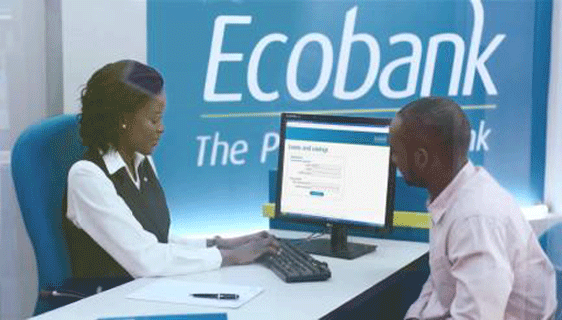
HARARE — Pan-African banking group Ecobank, whose largest investors include the Public Investment Corporation (PIC) and Nedbank, will tap into the diverse resource base of its widespread continental operations to mobilise finance instruments for its Zimbabwe unit, which is seeking a bigger role in the country’s struggling economy.
“The bank will continue to position itself to play a bigger role in facilitating the country’s growing trade links with the East, as well as within Southern Africa, through innovative trade and commodity finance solutions,” Ecobank Zimbabwe MD Daniel Sackey said on Thursday.
The Zimbabwe unit of Ecobank had significantly raised its profit before tax position, from $750 000 in 2012 to $2,4m by the end of December last year. It beat a marked slowdown in the economy and investor apprehension after President Robert Mugabe’s victory in last year’s July 31 elections.
A stronger rand-dollar exchange rate will also significantly boost the Zimbabwean economy, which is currently using a diverse basket of currencies as legal tender under a multiple currency regime adopted in 2009.
The central bank has since authorised companies and individuals to open bank accounts and trade in the Chinese yuan, Japanese yen and the Australian dollar, among other currencies.
“The continued downward pressure on interest rates and bank charges, coupled with lower savings levels due to declining national disposable income, will continue to present challenges not only to the entire banking sector but to other sectors of the economy that rely on the banking sector for appropriate funding and support,” Whatman said.
Ecobank has widespread operations in Africa. Nedbank has said it would leverage a 2008 alliance with Ecobank to scout for investment opportunities in East Africa.
The PIC has a stake of 18,35% in the bank. CE Elias Masilela was quoted on Thursday as saying that growth in Ecobank had been brisk over a short space of time.
- Chamisa under fire over US$120K donation
- Mavhunga puts DeMbare into Chibuku quarterfinals
- Pension funds bet on Cabora Bassa oilfields
- Councils defy govt fire tender directive
Keep Reading
The government in Zimbabwe this year scrapped a cap on interest rates it imposed last year, although it said this week that banks needed to keep their rates and charges lower.
The banks are battling severe shortages of hard cash that have had knock-on effects for the entire economy, leading to expensive short-term borrowing instruments.
Moreover, the government — short of money and facing a repeat of the economic crisis of 2008 which culminated in hyperinflation and empty shop shelves — is pressing foreign companies in the country, including banks, to give away majority shareholdings to black Zimbabwean groups.
Now, executives at Ecobank Zimbabwe want to use the financial resources the group has from its continental operations to lend in the Zimbabwean market. This is expected to increase interest income.
Sackey said this strategy would rest on support tapped from the group’s operations in the 35 countries that the Ecobank group operates in.
“Access to lines of credit and development of specialised expertise will underpin this strategy,” Sackey said.
In the year to the end of December, Ecobank benefited from credit lines worth $50,5m “made available by the Ecobank group and $4,7m from third-party foreign banks”, David Whatman, the group’s chairman in Zimbabwe, said.
He said this money had been used largely “to finance letters of credit and guarantee transactions”.
But executives at the bank said Zimbabwe had economic problems that could only be solved by attracting foreign direct investment through re-engagement with the international community, boosting agricultural productivity and rationalisation of import tariffs.
—BD Live










